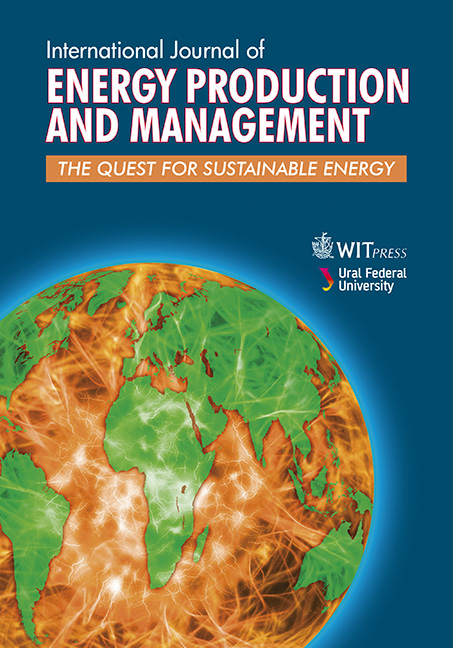Competitive development of energy cogeneration systems in conditions of economic imbalances
Price
Free (open access)
Volume
Volume 5 (2020), Issue 4
Pages
12
Page Range
342 - 354
Paper DOI
10.2495/EQ-V5-N4-342-354
Copyright
WIT Press
Author(s)
Alexey Domnikov, Mikhail Khodorovsky & Liudmila Domnikova
Abstract
The paper presents the results of a study in the field of a comprehensive economic assessment of the competitive advantages of cogeneration power sources in the context of economic imbalances.
In the course of the study, the theoretical and methodological aspects of the competitive development of energy cogeneration systems were studied. Thus, it is proved that for the methodological support of the process of constructing strategic tasks in energy-generating companies operating in energy cogeneration systems, it is necessary to develop specialized industry methodological tools for assessing business processes in the field of cogeneration. In addition, the revealed multilevel specif- ics of positioning cogeneration energy sources in the territorial energy market under the conditions of economic imbalances required creation of a special methodology to take into account the peculiarities of the development of energy cogeneration systems with the help of which it is possible to study the nature of the impact of economic imbalances that disrupt the normal course of the investment process in energy cogeneration systems.
Testing of the developed methodology showed that the relationship between the centralized and distributed energy cogeneration systems can be different depending on the market conditions and the state of the competitive environment. Thus, in addition to traditional steam turbine plants, in a centralized energy cogeneration system, priority should be given to cogeneration gas plants, as the most competitive in terms of efficiency and maneuverability, and in a distributed – to cogeneration gas turbine plants, mainly built on the basis of local boiler houses.
Keywords
centralized energy sources, competition, efficiency, mathematical economic models, power industry, reliability, risks, strategy, uncertainty.




